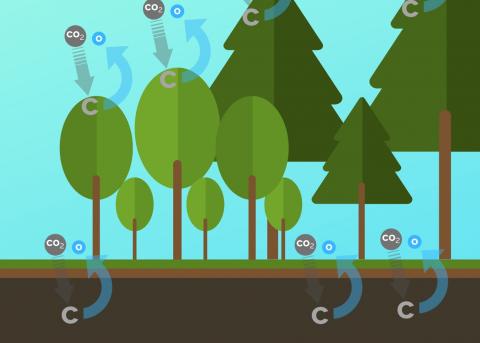Lecture “Carbon polygons as an instrument for carbon sequestration assessment for the Arctic ecosystems in Krasnojarsk Kraj” by Anatoly Prokushkin

The program of the Ministry of Education and Science of Russia on the creation of carbon polygons and farms has led to the formation of a new scientific terminology.
A carbon polygon is a territory allocated for the monitoring of climatically active gases. The polygons aim to determine the contents of such gases, measure their flows, model their behavior and integrate the obtained data into educational programs.
The latest Russian Federation initiative is focused on establishing a system of polygons (so-called the “carbon polygons”) to measure anthropogenic greenhouse gas emissions. The Ministry of Science and Higher Education of the Russian Federation is launching a pilot project to create test sites for development and testing of technologies for monitoring carbon balance. It is expected that around 80 carbon polygons will be established in Russia over the next several years, covering most of the country’s ecoregions.
Anatoly Prokushkin's lecture is conducted within The ACT! webinar series (that also makes for the MOOC of SDGs for Arctic and mountain sustainability) that portray a diversity of SDG-related issues and challenges in relation to the Arctic and mountain areas, and offer analytical overview of relevant cases.
More information on the topic is on SUNRAISE YouTube Channel (in Russian).


